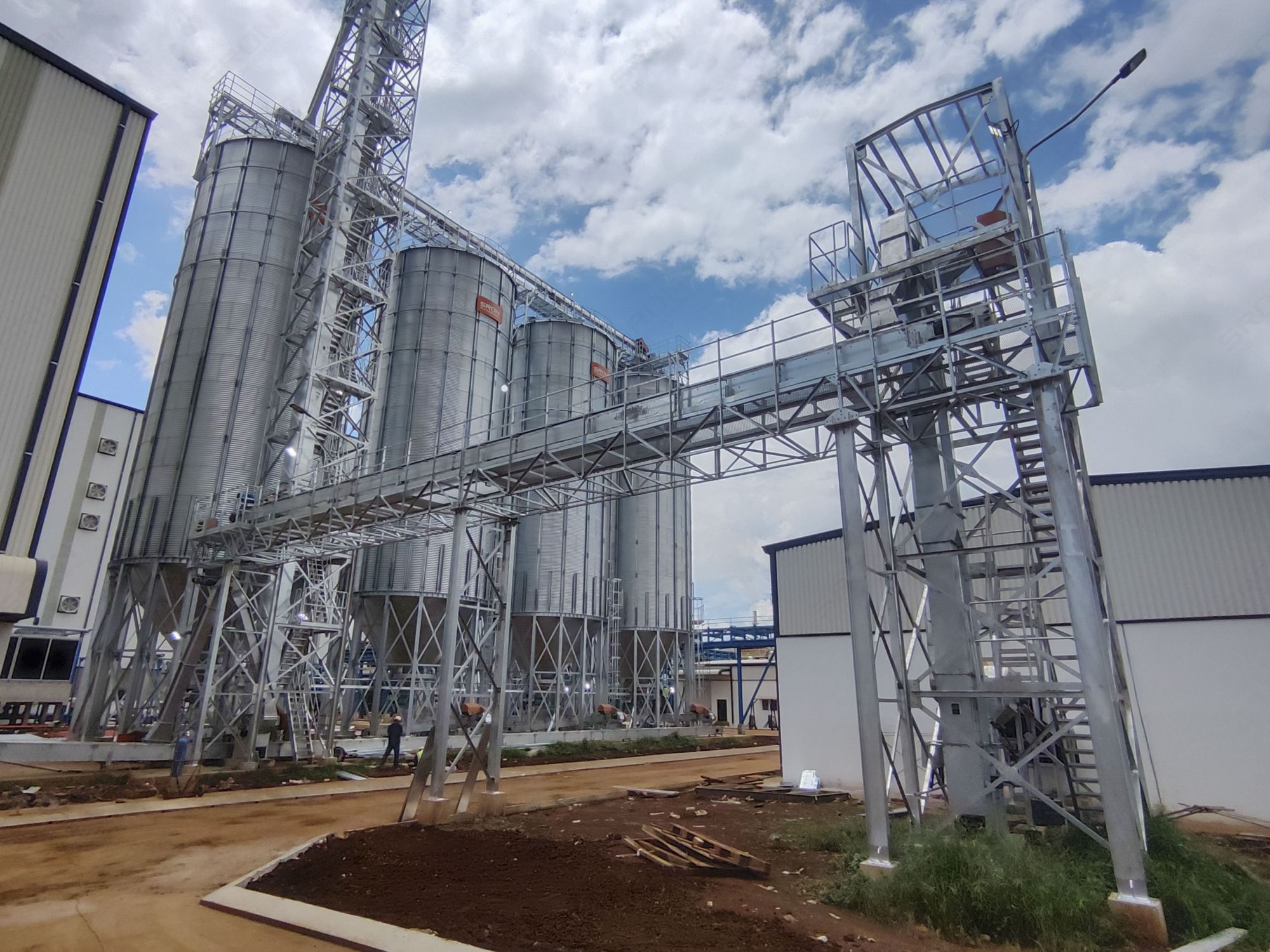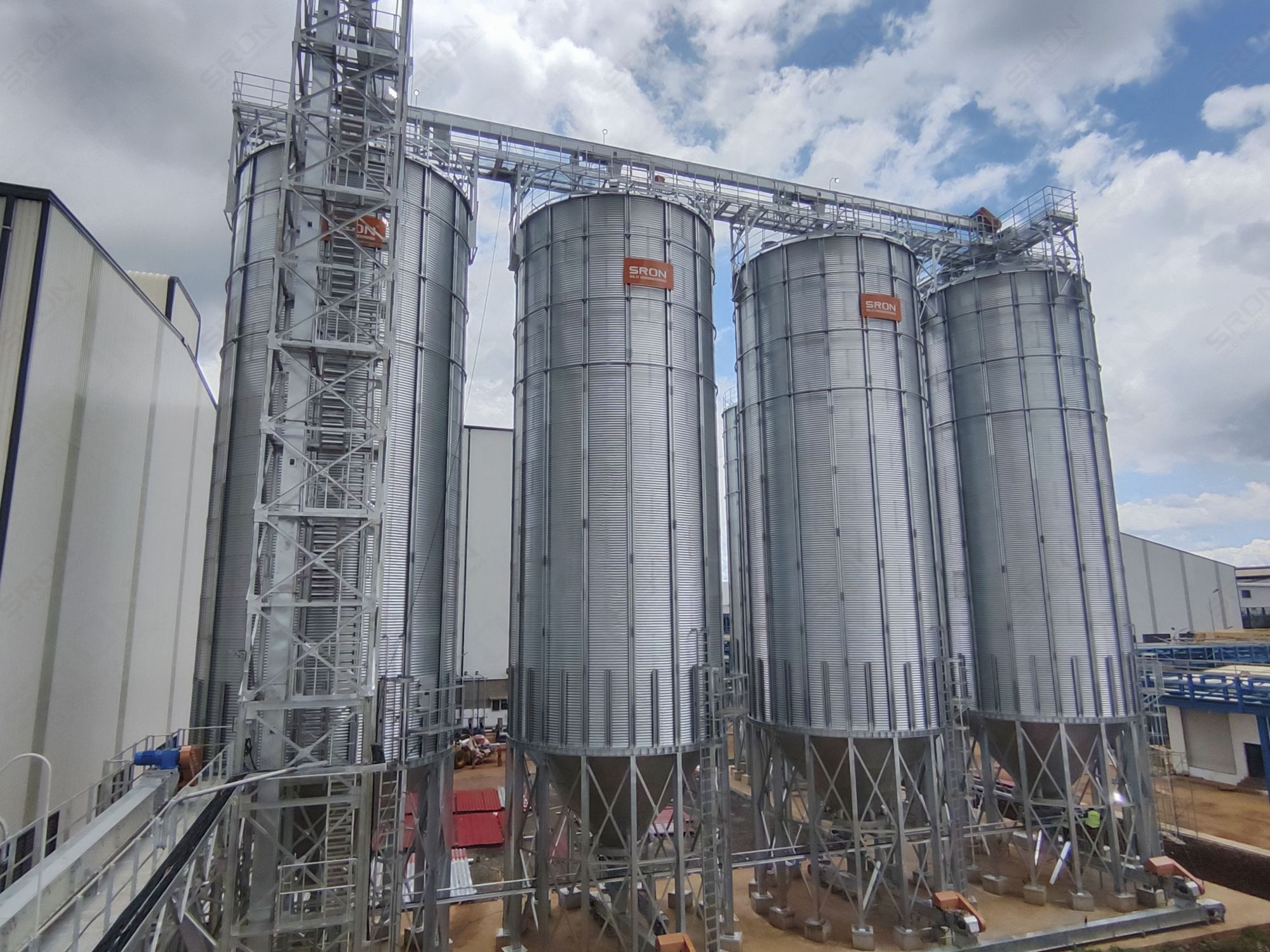In today's complex environment and growing demand, the storage of dried fruits (common ones include pistachios, almonds, walnuts, cashews, etc.) has become a vital link in the industry chain. Dried fruits have high oil content, are easy to absorb moisture, and are easy to oxidize. If they are not stored properly, they are very likely to become moldy and deteriorate, causing serious quality loss and economic losses. Traditional storage methods, such as ordinary warehouses and simple sheds, often have "hard flaws" such as poor sealing, difficult temperature control, and low space utilization. Dried fruit steel silos! This modern storage technology is gradually being applied to the dried fruit industry, bringing a qualitative leap in improving storage quality and efficiency.
Limitations of traditional storage methods for dried fruit storage
At present, many dried fruit producing areas and processing companies are still using traditional storage methods, such as brick-concrete warehouses, color steel sheds, simple stacking yards, etc. Although these methods have low initial costs, they have many defects:
Poor sealing: The traditional warehouse interface is loose, and air moisture can easily penetrate, causing the dried fruit to become damp and moldy, affecting the taste and shelf life;
Difficult to control temperature and humidity: The lack of a constant temperature and humidity system, the environment fluctuates with the outside world, and it is very easy to cause oxidation and quality change of dried fruits;
Low space utilization: Flat layout, poor stacking efficiency, unable to meet the needs of large-scale centralized storage;
Weak pest prevention ability: The structure is open, insects and rodents are easy to invade, and in severe cases, even the entire batch is scrapped;
High management cost: Relying on manual management, information is opaque, inefficient, time-consuming and labor-intensive.
With the scale and refinement of the industry, the traditional storage model can no longer support the high quality and large circulation needs of the modern dried fruit industry.
Steel Silos are tailor-made solutions for dried fruit storage
Excellent sealing
Galvanized steel plates or food-grade stainless steel materials have excellent compression and deformation resistance, and can store walnuts, almonds, walnuts, cashews and other dried fruits for a long time. At the same time, the steel silo is highly sealed through full welding or bolt fastening technology, effectively eliminating gaps, preventing moisture and pests from invading, and ensuring a safe and reliable storage environment. With a professional drying system, the humidity in the silo can be accurately controlled within the dry fruit safety storage standard range of ≤65%, thereby ensuring the quality of the dried fruit and extending the shelf life.
Accurate temperature and humidity control
The system integrates the intelligent joint control function of the drying tower to achieve seamless connection of temperature and humidity in "drying-storage". When the dried fruits processed by the drying tower enter the steel silo through the closed conveying system, the pre-set temperature and humidity environment in the silo (such as the optimal storage conditions for walnuts: temperature 15±2℃, RH55±5%) has been automatically adjusted to the right place through the intelligent system. This closed-loop process control avoids the temperature and humidity fluctuations in the temporary storage link after drying in the traditional method, so that the flavor and nutrition of the dried fruits are more completely preserved.
Ultra-high space utilization
The innovatively designed drying-storage integrated system achieves space optimization through vertical layout. The drying tower is usually erected in the center of the steel plate silo group and connected to each silo through a three-dimensional conveying pipeline. This compact design increases the comprehensive processing capacity by 3-5 times under the same site area.
Highly effective pest prevention capability
The high temperature stage (60-65℃) during the drying process itself has an insecticidal effect, and combined with the low temperature storage environment (15-18℃) of the steel silo, it can completely block the life cycle of pests. Actual application data shows that this solution reduces the pest rate from 3-5% in traditional methods to less than 0.1%.
Intelligent management system
Modern steel silos can integrate automatic material loading and unloading systems, environmental monitoring systems, intelligent early warning systems, etc. to achieve digital management of the entire process. Warehousing data can be checked in real time, the operation is simple, safe and efficient, reducing human errors, improving inventory turnover, and significantly reducing labor costs and management expenses.
Long service life and economy
Steel silos are made of galvanized steel plates or anti-corrosion alloy materials, with excellent anti-rust and anti-corrosion properties, and a designed service life of more than 25 years. Low maintenance, high durability, and efficient operation system, the overall cost is much lower than traditional warehousing methods, bringing sustainable economic benefits to enterprises.
Steel silos have become an ideal choice for modern dried fruit storage due to their superior sealing, environmental control capabilities, high-density storage and intelligent operation methods. In the future, as the dried fruit industry moves towards scale, standardization and intelligence, steel silos will play a greater role. Embracing new technologies and optimizing storage methods are the only way to promote high-quality development of the dried fruit industry.

.jpg)
.jpg)

